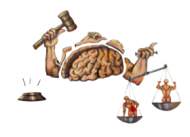Grief is an emotional reaction that we experience when we have a loss of a loved one or something that is close to us. However people who have persistent pain may also go through grief.
.
You are justified in feeling grief if you feel that you have lost certain abilities, connections with people, your job or the identity that you had before your condition started. You may also unconsciously be grieving losing yourself, meaning losing who you once were.
If you are experiencing grief to any degree, know that this is a natural response, especially when pain has limited you from doing all the activities that you once enjoyed.
When it comes to recovery from persistent pain, the one loss that you cannot afford to have is the loss of hope. A loss of hope is also referred to as hopelessness. Numerous studies have shown that hopelessness or poor expectation of recovery is the strongest predictor of non-recovery irrespective of the type of pain or injury.
It is easy to lose hope when one has been coping with persistent pain for a long time, especially when you have experienced multiple failed treatments from medications to various therapies. The aim of this program is to give you hope again. The way this is achieved is by no longer focusing on eliminating pain, but to focus on gaining back your quality of life despite the pain.
.
The aim of the program is to demonstrate to you that you can and will return to certain activities that you once enjoyed, even if they need to be somehow modified for now.
Why is it so important to have a positive expectation of recovery?
.
Studies show that those who are optimistic may recover faster from their injuries or illnesses and inevitably experience a better quality of life as they are going through the journey. Is that not worth the effort?
